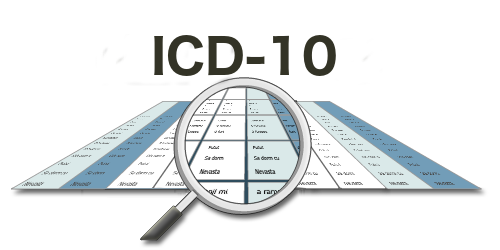Diabetes, a chronic condition affecting millions worldwide, significantly influences various aspects of daily life. Characterized by high blood sugar levels, it demands careful management and lifestyle adjustments.

People with diabetes often have to make significant changes to their daily routines, from their diet and exercise habits to how they monitor their health. These changes, while challenging, are crucial for managing the condition effectively and maintaining a good quality of life.
This article explores six key ways in which diabetes can change one's lifestyle. Understanding these changes is essential for anyone living with diabetes or caring for someone who does, as it helps in navigating the condition with greater awareness and preparedness.
- Dietary Adjustments
Adjusting one's diet is a significant lifestyle change necessitated by diabetes. Managing blood sugar levels often involves careful monitoring of carbohydrate intake and ensuring a balanced diet rich in nutrients. People with diabetes need to be mindful of their eating habits, which can include planning meals, reading food labels, and being aware of portion sizes.
This dietary shift does not mean one has to give up enjoying food. It’s about finding a balance and making healthier choices. For instance, incorporating more whole grains, fruits, vegetables, and lean proteins into the diet can have a positive impact on blood sugar levels. It's also important to understand the effects of different foods on blood sugar and to be aware of how to balance meals with medication and activity levels.
- Managing Fatigue and the Role of Nursing Care
One of the most common changes for people with diabetes is managing increased fatigue. High or fluctuating blood sugar levels can lead to feelings of tiredness and lack of energy, impacting daily activities and overall well-being. That’s where specialized care, often provided by nurses trained in specialized academic programs, becomes crucial. These programs equip nurses with the knowledge and skills necessary to offer comprehensive care to diabetic patients.
In most graduate nursing university programs, nurses are taught not only about the medical aspects of diabetes management but also about the importance of patient education and lifestyle guidance. They learn to provide nutritional advice, help with exercise plans, and offer emotional support, all of which are essential in managing diabetes. Nurses also learn to develop personalized care plans that consider the unique needs of each patient, helping them to manage symptoms like fatigue more effectively. This holistic approach to care, nurtured in online nursing programs, is vital in helping people with diabetes maintain a balanced and healthy lifestyle.
- Regular Physical Activity
Physical activity is a cornerstone in the management of diabetes. Regular exercise helps regulate blood sugar levels, improve insulin sensitivity, and reduce the risk of complications associated with diabetes, such as heart disease. Additionally, it can aid in weight management and promote overall well-being.
Incorporating exercise into one’s routine doesn’t have to be daunting. It can be as simple as daily walks, cycling, swimming, or any other form of physical activity that is enjoyable and sustainable. The key is consistency and finding the right balance that fits one's lifestyle and physical capabilities. It’s always best to approach healthcare professionals before starting any new exercise routine, especially for people with diabetes, to ensure that the chosen activities are safe and effective. Regular physical activity, coupled with other lifestyle changes, plays a vital role in effectively managing diabetes.
- Frequent Health Monitoring
Living with diabetes necessitates frequent monitoring of health, particularly blood sugar levels. This continuous monitoring is crucial for making daily decisions about diet, physical activity, and medication. Regularly checking blood glucose levels helps in understanding how different foods, activities, and stress levels affect the body. It also guides medication dosages and timing.
Modern technology has made this task easier with devices like continuous glucose monitors (CGM) and smart insulin pens. CGMs provide real-time blood sugar readings and trends, helping individuals better understand their condition and respond promptly to high or low blood sugar levels. Regular health check-ups with healthcare professionals are equally important. These appointments are opportunities to review overall health, adjust treatment plans, and discuss any concerns. Being proactive in health monitoring empowers people with diabetes to take control of their condition and prevent complications.
- Medication and Treatment Adherence
Adhering to prescribed medication and treatment plans is a critical aspect of managing diabetes. Depending on the type of diabetes, this might include taking oral medications, insulin injections, or a combination of both. Understanding how these medications work, their timing and potential side effects is essential for effective diabetes management.
Consistency is key to medication adherence. Setting reminders, using pill organizers, and maintaining a routine can help in integrating medication into daily life. It’s important to communicate with healthcare providers about any concerns or side effects experienced with the medication. They can offer guidance or adjust the treatment plan if necessary.
In some cases, treatment plans may also involve other health management strategies like blood pressure control and cholesterol management, as diabetes increases the risk for other health issues. By adhering to the comprehensive treatment plan, individuals with diabetes can maintain their health and prevent the long-term complications of the condition.
- Emotional and Psychological Adjustments
Diabetes can also bring emotional and psychological challenges. The constant management of the condition, fear of complications, and lifestyle changes can lead to feelings of stress, anxiety, and sometimes depression. Recognizing and addressing these emotional aspects is as important as managing the physical aspects of diabetes.
Coping strategies might include seeking support from healthcare professionals who can provide or recommend counseling services. Support groups can also prove beneficial. Sharing your journey and seeking advice from others who understand the challenges of living with diabetes can be comforting and helpful.
Developing a routine can lend a sense of control and normalcy. Mindfulness practices, regular exercise, and hobbies can also be excellent stress relievers. Managing the emotional and psychological impact is a crucial step in living well with diabetes.
Conclusion
Diabetes brings about significant lifestyle changes that require careful management and adjustment. From frequent health monitoring and strict medication adherence to coping with emotional and psychological challenges, living with diabetes involves various aspects that extend beyond mere physical health.
By understanding and effectively managing these changes, individuals with diabetes can lead fulfilling lives while maintaining their health. It’s a journey that involves learning, adapting, and sometimes struggling, but with the right support and management strategies, it is certainly a manageable one.





